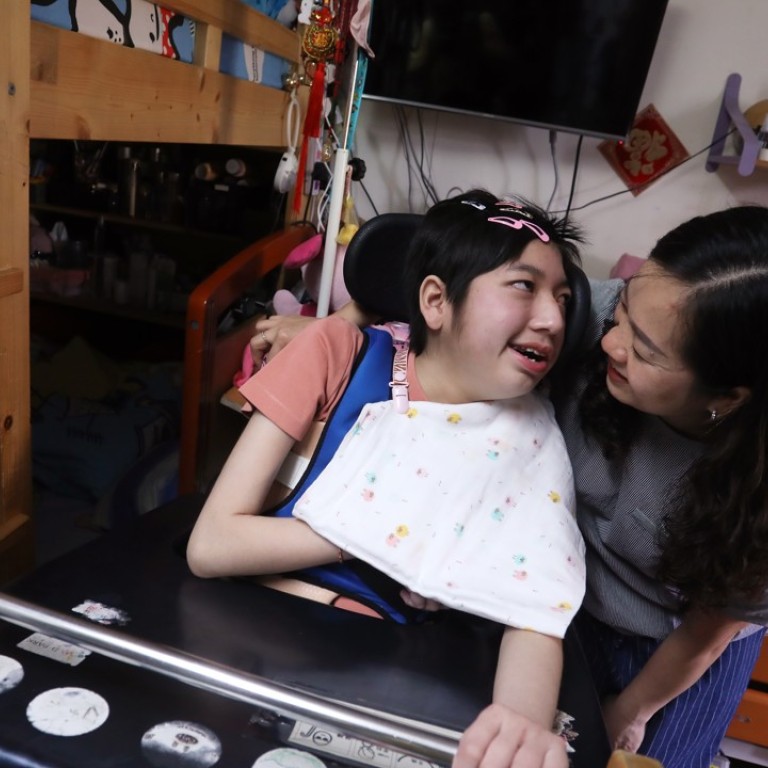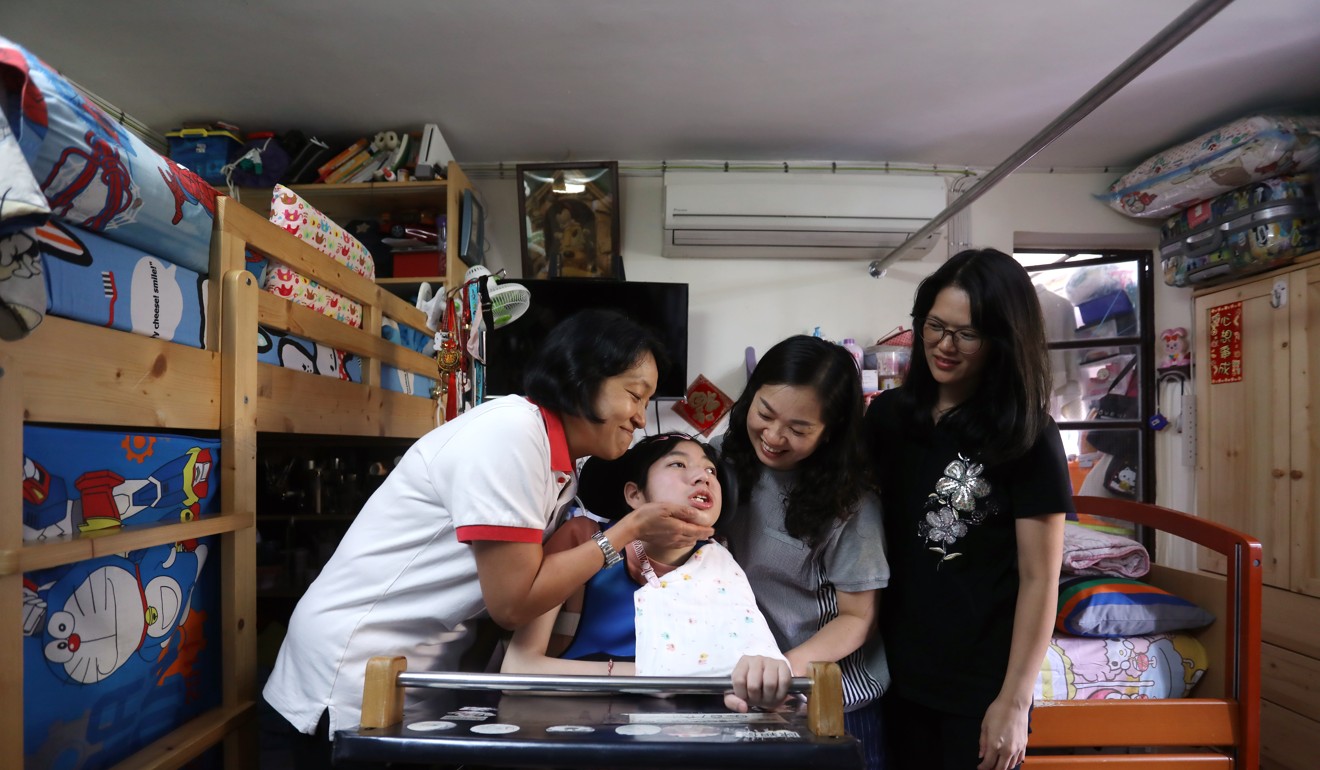
New Hong Kong foundation hoping to ease burden on families of sick children as lack of palliative care takes them to breaking point and beyond
Estimates put number of city’s young that need specialised care at 1,500, but only 100 are being helped according to medical professionals
Taking care of a 13-year-old daughter who suffered severe disability due to a rare genetic disease was a difficult job for Joan Chan Sun-fun – doubly so when she had no support.
The full-time mother was left as the primary caregiver in looking after the bedridden girl, Chan Wing-yee, who has breathing problems, needs daily sputum suction, and is fed through a surgical opening linked to her stomach.
“She’s just like a baby,” Chan said. “She can’t take care of herself at all … and needs help to sit.”

“I have experienced not sleeping for three days in a row … to take care of her,” said Chan, referring to occasions when Wing-yee was hospitalised, or sometimes when she was at home.
Chan’s situation is not unique for parents with severely ill children in Hong Kong. A serious lack of palliative care support for youngsters in the city means others find themselves in a similar predicament.
This is why Children’s Cancer Foundation, a non-government organisation which supports minors with illnesses, has been providing such service to non-cancer children for free since 2011.
In 2015, the foundation rolled out a two-year pilot scheme at Tuen Mun Hospital to extend the service to more non-cancer children and their families.
Thirty sick children from the hospital in New Territories West had received care through the charity scheme, which was reviewed last year. Some families continued to receive support afterwards.
End-of-life care in Hong Kong severely lacking, doctors warn
To Chan, who began to receive this support three years ago, it means there are nurses from the foundation to provide home care for Wing-yee, who has suffered from Dandy-Walker Syndrome since she was five months old.
If the teenager develops any medical conditions, nurses help liaise with doctors, and arrange a visit to a hospital, skipping the long queues at accident and emergency.
The service has not only eased Chan’s burden in taking care of her daughter, but also lessened the mental stress she was under.
“I didn’t know who I could share my feelings with, as no one understood,” said Chan, who has been receiving treatment for her depression since 2013. “But I feel more relieved by talking to [nurses from the foundation].”
Protecting child rights in Hong Kong will take more than an official commission
Molin Lin Kwok-yin, professional services manager for a newly established body named Children’s Palliative Care Foundation formed under the Children’s Cancer Foundation, said compared to services for adults, palliative care targeting children attached more importance on support for a patient’s family.
“A child patient suffers a disease for a prolonged period, but an adult seldom has such a bad condition for a long time, say over 10 years,” Lin said. “The impact brought by a child patient [who needs palliative care] on parents and siblings is often bigger than an adult who needs a similar service.”
According to the World Health Organisation, palliative care for children means the “active total care of a child’s body, mind and spirit”, as well as “giving support to the family”. It should also aim to “alleviate a child’s physical, psychological, and social distress”.
Children who have received palliative care support spent less time in hospital, according to data collected by the Tuen Mun Hospital scheme.
Manpower shortages leave new Children’s Hospital without time frame for rolling out full service
Their average annual number of days for hospital stay dropped from 78 to 12, compared to before joining the scheme, and the frequency with which they stayed in an intensive care unit every year slid from four times to once.
The new foundation aims to extend its palliative care service to more sick children and their families, and plans to serve 200 families in the coming three years.
According to Professor Li Chi-kong, chairman of the Hong Kong Society of Children’s Palliative Care, services for children in the city has been inadequate.
“Hong Kong has specialists and nurses in palliative care, but their focus was on adults. Development of such service in paediatrics remained slow,” said Li, who is also a member of the newly formed group’s governing committee.

He said it was estimated that about 1,500 children in Hong Kong required palliative care, but only up to 100 of them, mostly cancer patients, received the service. Other patients who required the service included those suffered from rare diseases.
The city will get its first centralised team in paediatric palliative care when the Hong Kong Children’s Hospital in Kai Tak opens in December, while Li described it to be a “milestone” in paediatric palliative care, it would be difficult for just one team, that so far has recruited a doctor, four nurses and a social worker, to meet the needs of families across the city.
Looking forward, Li hoped more doctors and nurses would be involved in palliative care for children in the years ahead, and hopes a speciality for this service could be formed to provide more training for people.
A spokesman for the Hospital Authority said the paediatric palliative care team in the Children’s Hospital would begin providing services in stages, starting next year.
It would focus on care for patients of paediatric oncology, cardiology, nephrology, surgical and intensive care. Recruitment for the team was still in progress, the spokesman added.

